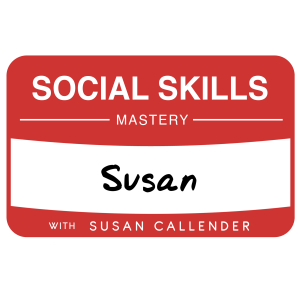
160. From Passive to Powerful: Transforming Your Communication Style
 2023-12-23
2023-12-23
For many socially reluctant professionals, being assertive and advocating for themselves can be challenging. Assertiveness involves expressing your thoughts, feelings, and needs in a direct and honest manner while respecting the rights and feelings of others. Factors that can contribute to experiencing difficulty in speaking up include personality traits, cultural and societal influences, and fear of conflict. This can be the greatest one, as many people fear confrontation and conflict, leading them to avoid assertive communication to prevent potential disagreements or negative reactions from others.
Overcoming difficulties in being assertive often involves self-awareness, practice, and, in some cases, seeking support from friends, family, or professionals such as therapists or communication coaches. Developing assertiveness skills can contribute to better communication, improved relationships, and increased self-confidence.
Free Guide: The Social Skills Playbook
Free Guide: The Ultimate Way to Start Conversations and Leave Them Wanting More
Get on the waitlist and be the first notified when we open The School of Social Mastery
Schedule your: "Radiate Social Confidence Now" Chemistry Call
More Episodes
 2024-06-27
2024-06-27
Create your
podcast in
minutes
- Full-featured podcast site
- Unlimited storage and bandwidth
- Comprehensive podcast stats
- Distribute to Apple Podcasts, Spotify, and more
- Make money with your podcast
It is Free
- Privacy Policy
- Cookie Policy
- Terms of Use
- Consent Preferences
- Copyright © 2015-2024 Podbean.com




